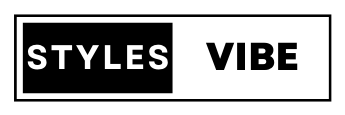Diversity, Equity, and Inclusivity (DEI) is a novel approach to creating stronger workforces – the key to achieving a strategic edge. Dynamic, motivated, and creative teams can effectively navigate challenges and fuel company success. While organizations may find it difficult to embrace the change, they might seek help from recruiting experts such as a staffing agency in Pittsburgh or their local area.
Diversity, Equity, and Inclusivity (DEI) and Its Importance
Diversity, equity, and inclusiveness (DEI) implies adopting practices to create a diverse workforce. Hiring people from diverse backgrounds, ensuring equity, and valuing employees improves productivity and business outcomes. Here is a deeper insight into the significance of DEI for organizations:
Innovation
A diverse workforce, where everyone has access to equal opportunities can foster creativity. People would be better able to understand company challenges and offer innovative solutions.
Productivity
Employees who are valued are likely to have a greater motivation level. Driven teams actively engage in their work, are highly productive, and become an asset to the company.
Hiring Benefits
Organizations using a DEI approach for recruiting are more popular in the market. A larger talent pool facilitates better hiring and may offer a competitive edge.
Empowerment
Many companies empower employees by providing the right support and valuing their opinions which positively impacts their job performance.
Company Culture
A team created according to the DEI philosophy helps build a positive company culture and progressive work environment.
Wider Audience
Hiring staff from marginalized groups may create a better social impact on your organization, drawing in more consumers. An amplified customer base will deliver higher profits.
Improved Teamwork
Diversity and inclusiveness help create better employee relationships, which is the basis of improved teamwork and better outcomes.
Valuable Practices in Building an Inclusive Workforce
A workforce created on a DEI ideology is the cornerstone of organizational transformation. Here are some valuable practices for organizations to establish an inclusive team:
Diverse Recruitment Strategy
The best way to implement a diverse recruitment strategy is to expand your efforts to reach more candidates. You can engage educational institutes and staffing agencies, use job boards, or post on recruitment platforms.
Training and Education
Planning training programs will develop an awareness of unconscious bias and promote cultural competency within your employees. This will help promote the concept of DEI in the workplace.
Inclusive Job Adverts
Another technique for promoting DEI at the workplace is to publish inclusive job adverts and job descriptions that attract candidates from diverse backgrounds. The adverts should be gender-neutral and mainly focus on qualifications instead.
Structured Hiring Process
Organizations can benefit from a structured hiring process emphasizing skills, qualifications, and cultural diversity. Diversified interview panels and fair evaluation processes reduce bias and ensure better hiring.
Employee Resource Groups (ERG)
Employee Resource Groups (ERG) are increasing as they bring together employees from different backgrounds to exchange views and offer support. This is a valuable resource for the company as it helps better understand the employee needs.
Equal Opportunities
Having a fair organizational culture where every employee is provided equal opportunities regardless of their educational, ethnic, and career background is the pathway to surpassing competitors. Some valuable opportunities for the employees may include mentorship and training programs.
Transparent Practices
Organizations that adopt transparent practices focusing on equity and fairness may have better teams. Adopting fair practices for compensation, promotion, and conflict resolution will motivate teams for better performance.
Inclusive Leadership
Encouraging a culture of inclusive leadership can be a game-changing approach for organizations. Employees whose voices are heard and responded to feel valued and are more likely to have a long-term association with organizations.
Regular Assessment
Organizations should plan regular assessments to gauge the effectiveness of D&I initiatives. This will support a data-driven approach to improving HR policies, ensuring the best outcomes.
Culture of Respect and Acceptance
Fostering a culture of respect, acceptance, and collaboration is the key to success. Promoting diversity through cultural events, awareness initiatives, and other activities may create a positive impact.
Conclusion
The culture of inclusive workforces is rising across the globe for the incredible benefits it offers. Respected, safe, and motivated employees are key to improved business outcomes, greater employee satisfaction, enhanced productivity, and better decision-making. Recruiting experts are actively working to create inclusive workforces such as ensuring executive interview questions and company policies align with the objectives. However, it might require navigating through unique staffing challenges, still, the benefits outweigh the challenges. Also read:
Balenciaga Official, Revolutionizing Fashion with Innovation and Artistry





Pingback: How Has Communication Evolved with Digital Transformation?